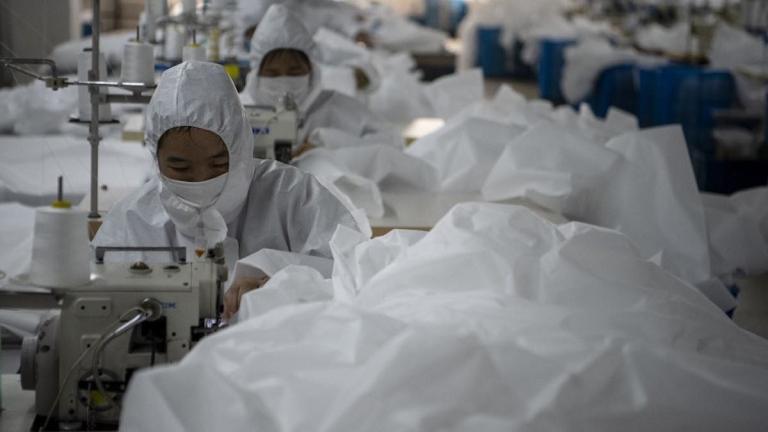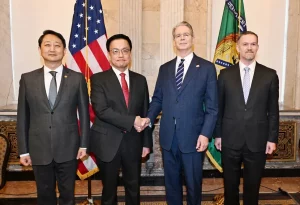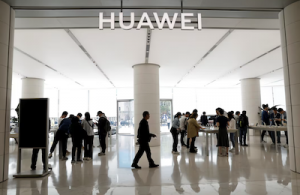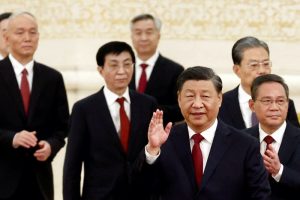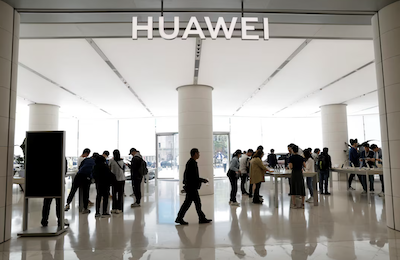Deserted factories, businesses struggling to survive and the economy on life-support.
For China, the start of 2020 has been an unmitigated disaster after the Covid-19 outbreak swept across the country before spreading to more than 50 other nations.
Even the official statistics fail to convey the magnitude of the catastrophe as the death toll climbs past 3,000 with close to 89,000 people worldwide infected.
Politically, this has been a public relations calamity for President Xi Jinping and the ruling Communist Party. Accusations of incompetence have been leveled against Beijing for its early response to the crisis, as well as claims of a “cover-up” by officials in Wuhan, the epicenter of the epidemic in Hubei province.
“It’s very difficult to say how much damage the Covid-19 disease has done to the reputations of Xi Jinping and the CCP [Communist Party of China] but I don’t think it’s an imaginative stretch to say it’s ‘disastrous,'” Wu’er Kaixi, the exiled Chinese activist known for his leading role in the Tiananmen Square protests in 1989, told Asia Times.
In the past 10 days, a back-to-work program has been launched, but progress has been slow after factories, businesses and schools were shut down in January following the Lunar New Year holiday.
At the same time, most of the population was placed in quarantine as economic activity flat-lined.
Official data released by the National Bureau of Statistics at the weekend showed that manufacturing plunged to near record lows in February.
“China’s economy is getting hit much harder by the coronavirus outbreak than markets currently recognize. And Wall Street appears to be the last one to know it. Economic data privately collected by China Beige Book shows that the state of Chinese businesses is significantly worse than investors have assumed for weeks,” Shehzad H Qazi, the managing director of China Beige Book, an independent research company, said.
“The most frightening aspect of this crisis is not the short-term economic damage it is causing, but the potential long-lasting disruption to supply chains,” Qazi wrote in a commentary for Barron’s, which is part of the Wall Street Journal group of Dow Jones.
Hardest hit has been the private sector, which creates 60% of GDP growth and accounts for around 80% of urban jobs. Small- and medium-sized enterprises have borne the brunt of the lockdown.
Yet they will be expected to pick up the slack when more than 87 million Chinese students graduate from college this year.
Later this month, the annual job fair merry-go-round is due to start. But that is looking increasingly unlikely as major gatherings still carry a major health warning.
Instead, the State Council held a media briefing on Saturday encouraging SMEs to continue to “recruit graduates.” During the past three years, the private sector has “employed 60%” of new college-educated staff.
The problem this time is that these are the same companies struggling to avoid massive layoffs. Huang Qifan, the vice-chairman of the National People’s Congress Financial and Economic Affairs Committee, has already warned that the dangers of unemployment are more “scarier than the epidemic itself.”
“There is no easy narrative to maintain the illusion of an all-powerful Xi when the country is still [in parts in] lockdown . it appears this virus is more viral than any meme Xi and the CCP can propagate to stop it,” Wu’er Kaixi told Asia Times during a stopover in Bangkok on his way to an Oxford University Union debate in the United Kingdom.
Still, even though Xi and his inner circle of senior Party cadres have yet to supress the disease, state media has been “celebrating” the publication of a new book, A Battle Against Epidemic: China Combatting Covid-19 in 2020.
Officially launched last week in a fanfare of publicity, the CCP is determined to change the narrative with the President and his posse riding to the rescue.
“How do you ensure a story has a fairy tale ending? You write the ending yourself of course,” David Bandurski, the co-director of the China Media Project, an independent research, fellowship and exchange program in partnership with the Journalism & Media Studies Center at the University of Hong Kong, pointed out.
“So it seems that while we all wait to see how the Covid-19 fares in the rest of the world, the verdict is already out on the epidemic as a major show of resolve on the part of the Chinese Communist Party. The story has already been written,” he said.
“According to the Xinhua News Agency release on the book, it ‘collectively reflects General Secretary Xi’s commitment to the people, his sense of mission, his far-reaching strategic vision and outstanding leadership as the leader of a major power,'” Bandurski added.
Yet while that is unlikely to placate the anger which first emerged on the country’s social media chatrooms last month, it looks certain to be ridiculed in the rest of the world where the threat of a pandemic looms.
Relations were already strained between Beijing and Washington before the coronavirus outbreak after a two-year-long trade war. In the corridors of Brussels, there were also growing concerns within the European Union about China’s predatory economic policies.
Decoupling has become fashionable in the White Houseafter an underwhelming phase one trade deal.
“Relations between China and the West were stressed before the outbreak of this virus, and we’re going to see a further erosion of trust in China as a global player. This has been a long time coming, but it’s deserved,” Wu’er Kaixi said.
“I’ve been telling the world ever since I was sent into exile in 1989 for leading a movement in favor of increased freedoms and democratic participation that the Chinese Communist Party is not to be trusted. Supply chains will undoubtedly diversify. They have to,” he continued.
“The talk was of decoupling from the Chinese economy before the outbreak of Covid-19. That talk will [intensify in] the coming months, even years. This is an event that could – not necessarily will – change the global economic landscape. China has a lot to lose should that be the case,” Wu’er Kaixi added.




